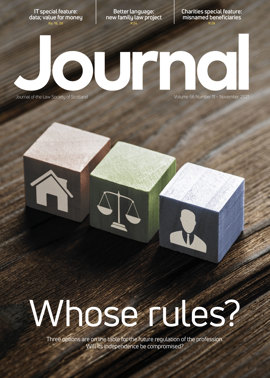Pensions: Metric proposed for Paris alignment reporting
Ahead of COP26, the DWP published on 21 October an open consultation, entitled Climate and investment reporting: setting expectations and empowering savers. It seeks views on the pension policy proposals on Paris Agreement alignment reporting, accompanying draft regulations and statutory guidance, and draft statutory/non-statutory guidance explaining DWP expectations on Implementation Statement reporting and the Statement of Investment Principles.
While the specific proposals may be very detailed and technical, as its title suggests and reflecting its subject matter, the consultation is aimed at a very wide range of stakeholders:
- pension scheme trustees and managers;
- pension scheme members and beneficiaries;
- pension scheme service providers, other industry bodies and professionals;
- civil society organisations; and
- other interested parties.
Paris alignment reporting and related guidance
It is proposed that the Occupational Pension Schemes (Climate Change Governance and Reporting) Regulations 2021 be amended to require trustees subject to those regulations to calculate and disclose an additional climate-related metric, a portfolio alignment metric setting out the extent to which their investments are aligned with the goal of limiting the increase in the global average temperature to 1.5 degrees Celsius above pre-industrial levels. These metrics, it is said, will help trustees understand how the companies they are invested in are placed to weather the transition to a low carbon economy.
The trustees concerned are, broadly, those of certain larger pension schemes, authorised master trusts and authorised schemes providing collective money purchase benefits.
Accordingly, the paper consults on:
- Draft Occupational Pension Schemes (Climate Change Governance and Reporting) (Amendment, Modification and Transitional Provision) Regulations and draft amendments to statutory guidance;
but also seeks views on related:
- draft non-statutory guidance explaining what it considers to be best practice in relation to Statements of Investment Principles (“SIP”), which describe for a relevant scheme its trustees’ climate change and stewardship policies; and
- draft statutory guidance (to which relevant trustees are required to have regard) explaining expectations across the Implementation Statement (“IS”), which describes how the trustees have been implementing these policies.
All this is with a view, as is stated, to supporting pension schemes to “play their part in tackling climate change and protect their members’ savings from environmental, social and governance risks”.
Implications for trustees
The consultation builds on the statutory requirements introduced with effect from 1 October 2021 in relation to identification, assessment and management of climate related risks and opportunities. Citing amongst other considerations:
- that transition consistent with the Paris Agreement is expected to lead to a fundamental transformation in the global economy affecting all types of pension schemes regardless of their portfolios;
- that an increasing number of the largest UK pension schemes have already voluntarily adopted net zero targets or signed up to frameworks which require net zero commitments; and
- some evidence that pension scheme members care about climate change and the impact it will have on their savings, environment and wider society,
the consultation makes clear that trustees retain complete primacy over any investment decisions they make as a result of alignment assessment, and suggests that the proposed reporting requirements can help trustees explain the rationale for their decisions.
While the alignment reporting requirements proposed do allow for some flexibility to reflect different circumstances of schemes and their portfolios (and availability or otherwise of the information required to complete assessment), undoubtedly alignment assessment and related activity will have a compliance cost, and it is to be hoped that that cost will be kept under review to ensure that it is reasonable and not disproportionate. Care will of course require to be taken to ensure that in any extension of the requirements to smaller schemes, the impact of compliance cost is recognised with appropriate and sensible adjustments being made.
Clearer expectations
In terms of the draft SIP/IS guidance, its stated objectives are to:
- improve the quality of SIP policies (encouraging trustees to move away from boilerplate clauses and to explain how the policies in the SIP are in savers’ interests);
- develop best practice for IS reporting (to help trustees understand what good practice looks like in relation to reporting engagement activities, voting behaviour and most significant votes);
- clarify that a scheme may use disclosures from other frameworks; and
- improve consistency across scheme reporting and products (by clarifying what is meant by key terms such as “most significant vote”, indicating which information Government anticipates being most useful for members, and clarifying the target audience for the IS).
While there may be some devil in the finalised detail, this clarification of expectations in relation to compliance with regulatory requirements is most welcome and will be of assistance to trustees and their advisers.
Regulars
Perspectives
Features
Briefings
In practice
Online exclusive
In this issue
- Good legal software suppliers listen to you
- The trends that will shape law firms in 2022
- Technology won't solve everything...
- Key trends in legal tech adoption for UK law firms
- The top 4 benefits of moving to a cloud solution
- Why cyber risk management is not the same as IT support
- Business growth: finding the right package






